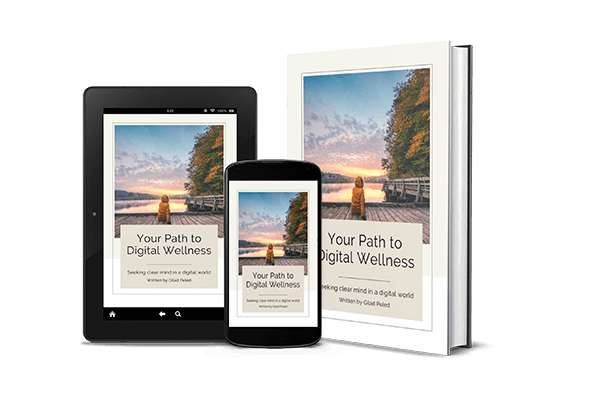It was only recently that I became aware of the concept of a digital footprint. Doing some research, I found that I was familiar with a few things related to this topic. However, it definitely shapes the mind to gain a broader perspective and grasp the bigger picture.
As digital citizens, we are so overwhelmed by digital information that the very moments when we are not scanning through screens are rare and special. We spend many hours working, studying, socializing and playing online every day.
But in spite of the fact that we live in a virtual world, few of us realize that every action we take online leaves footprints and remnants. Even fewer know the potential consequences.
Digital footprints – what are they?
So, our internet activity leaves traces in the digital landscape. These are all traceable information about our activities and the ways we communicate through the web. It can include information and data we authorize websites to receive from us, emails we send, social media posts we publish, etc.
Each time we visit a website, a cookie file is stored in our browser. Our footsteps are being tracked, allowing the site to collect information about us.
While it may appear harmless, the information can reveal more details about us than we would like, and can expose our personal information.
There are two types of digital footprints – active and passive.
When we leave an active footprint, we leave a trail of information behind knowingly and intentionally. This is, for example, by posting a blog, sending an email, posting on social networks, or filling out a form.
Our passive footprint includes information that is provided unintentionally, for example, by browsing websites, using apps that use our location, and searching and using products and services that create marketing profiles and improve the effectiveness of advertising.
How is a digital footprint usually used?
In addition to demographic information, our digital footprint can be used to obtain information about our political beliefs and interests, among other things. A cookie file embedded in our computer is commonly used to collect relevant information in order to track our future behavior.
On commercial websites, for example, cookies enable us to save items in the shopping cart. They also enable us to store access information and to receive customized offers based on our geography and interests.
Advertisers use digital footprints to generate ads that are tailored specifically to us. For example, we look at a pair of shoes online, and then see the same pair on Facebook.
A slightly different use that deserves attention is that of employers (or anyone who wants a background image of us without our knowledge).
It is common and accepted practice today to do a Google search on a job candidate as part of the hiring process (however, this poses a legal question). Many employers admit to rejecting candidates based on information they find on social media.
You never know what posts and photos are available in digital spaces and accessible to others, even if your profile is private. Google searches can often reveal public content you didn’t know existed.
Therefore, if you’re looking for a job, it might be a smart idea to think about your online visibility.
The digital footprint is only growing, not shrinking
We are constantly being tracked and monitored by every platform we interact with. It makes erasing our digital footprint on the internet impossible.
For databases, keeping our information is easier than deleting it.
You can think of all the mistakes you made and all the things you created and experienced. They are all burned into our collective digital memory, either positively or negatively.
Moreover, it’s comforting to know that various reforms in recent years have given us rights we didn’t have before. We can ask companies that hold personal information about us to share it with us or delete it.
Since this is a very complicated bureaucracy, the exercise of these rights will vary from company to company. However, in general, it is fascinating and interesting to explore what is possible and what information is available.
Here is a fascinating article on the subject on Mine’s blog.
How should we manage our digital footprint?
Make sure you know your rights: Global governments are slowly realizing that privacy and information security are their responsibilities. Legislation alone is not enough, but it is certainly possible to see positive changes and transformations.
With the California Consumer Privacy Act of 2018 (CCPA), Californians have additional control over the information that businesses collect about them.
The GDRP is another example of a European regulation governing the way large companies handle user information. It’s the same one that requires websites to ask for consent when using the cookies described earlier in my article.
It is worth keeping an eye on the happenings and changes surrounding the topic, because they are very relevant to our right to privacy.
Control your account and privacy settings
Most of us don’t think about setting things up on our own. No matter which active account you have, whether it’s Google, Facebook, or your Mac, it’s better not to rely on the default settings.
Using settings, we can modify the privacy level of our posts, limit the collection of certain information, or limit its sharing with third parties.
When we get into the habit of checking the settings and adjusting them, we become more aware of what companies are collecting. In the case of Google, for example, it is documentation of almost everything we do online using a Google account. -All searches, locations, etc.
Facebook, for example, lets us download the information they have accumulated about us. I highly recommend trying it out.
In this regard, the subject of WhatsApp’s privacy policy change is a relevant and concrete example. You can read more about it here.
Searching for ourselves online
A Google search can gives us a sense of our online presence. Reviewing your private information that is public and accessible online is quite an eye-opening experience.
Additionally, you can use this tool to search if your email address was triggered by any significant data breach events. If it was, it is recommended to change the password and not to use it again, not even on other accounts.
Use Google Alerts
For those of us with uncommon names, another interesting strategy is to set up Google Alerts for our names. This way Google will notify us when new information is published including our names.
Take a moment to think before you post
It is wise to start thinking before you click the “Send” button. It has become something so intuitive that we should examine the degree of restraint we exercise when sharing information.
Leave no trace
In the end, it is much easier to avoid creating new footprints than to remove old ones. It takes skills, learning how to move in digital spaces in an ethical and respectful manner. However, it is a skill that deserves to be learned in an era when the information economy bites harder and harder on our privacy.
When browsing through the browser, you can browse anonymously (incognito). You can do this by right-clicking the Chrome button or selecting “incognito window” from the options menu. In this browsing, the information that the browser normally stores is not stored. This includes browsing history, passwords, information saved in forms that the user fills out, downloads, and cookies.
It’s worth mentioning here the “Brave” browser which is much more privacy-centric than Google Chrome.
In the world of social networks, it is easy to forget that everything is very public. It is advisable to think twice before releasing personal information, or things we will need to explain to friends, family members or our bosses.
Don’t panic
The purpose of this article is not to cause anxiety, but to raise awareness. Digital footprints are examples of things we don’t consider in our daily activities in the digital space. This is because we have gotten accustomed to thinking that we have no effective way of protecting our information, and also because there are too many things to consider.
The point is that there is something to be done, and it is worth doing. Even if it seems insignificant, it is not. We need to wake up as a society to respect our privacy so that we can demand that companies respect it as well.
As usual, change begins with us.





